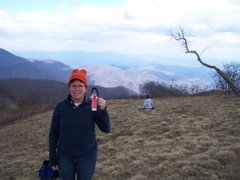![]() Upcoming Webinars…
Upcoming Webinars…
We’re pleased to announce 3 new one-hour webinars this Spring for formal and non-formal youth educators. For details of these and the four previously-announced webinars, see below or visit http://greenteacher.com/webinars. A reminder: these webinars are free of charge. We hope you’ll take advantage of the opportunity to explore these current popular topics in environmental and outdoor learning with us.
We’ll be announcing more webinars soon, so please check our website frequently – OR visit http://list.web.net/lists/listinfo/gt-news and join our listserv to receive email notices of upcoming webinars.
 Tuesday March 22, 2011, 7:30 - 8:30 p.m. EST
Tuesday March 22, 2011, 7:30 - 8:30 p.m. EST
Webinar topic: "School Grounds for Healthy Play and Learning – Research and Case Studies of Good Design and Teaching Excellence on School Grounds"
Presenter: Cam Collyer
How might school grounds now have a greater importance in a child’s development than 20 years ago? How far has the school ground movement in North America come in the past 20 years? Cam will share some excellent examples of school ground design from North America and Europe and contrast them. He’ll also share some approaches to teaching on the school ground that are working well and describe the momentum that, in some areas has school districts working in support of schools improving their grounds.
Age appropriateness: K-12
 Wednesday March 30, 2011, 7:30 - 8:30 p.m. EST
Wednesday March 30, 2011, 7:30 - 8:30 p.m. EST
Webinar topic: "Plugged In; But Tuned Out: The Need to Reconnect with Nature"
Presenter: Herb Broda
In this age of alluring techno-gadgetry we need to be very cautious about maintaining a balance between indoor and outdoor activity. At a time when children's natural curiosity about the outdoors is eclipsed by the demands of busy schedules and the ever-present glow of video screens, schools and outdoor centers may be the only places where kids are encouraged to interact with nature. Kids need to go outside for both learning and play—indeed there is a need for old-fashioned unstructured play in nature – the kind of invented play that “older” folks fondly recall.
Age appropriateness: K-12
 Thursday April 7, 2011, 7:30 - 8:30 p.m. EST
Thursday April 7, 2011, 7:30 - 8:30 p.m. EST
Webinar topic: "Shades of Green: Developing Artistic Approaches to Environmental Education"
Presenter: Hilary Inwood
This webinar explores the emerging field of eco-art education, an integration of art education and environmental education, as a means of helping to develop environmental literacy in students and teachers. Hilary will introduce artwork and artists focusing on environmental issues in Canada and beyond, as well as some of the eco-art work that has been created in Toronto schools in recent years. Participants will be invited to share their own ideas and projects for creative approaches to EE.
Age appropriateness: K-12
 Tuesday April 12, 2011, 7:30 - 8:30 p.m. EST
Tuesday April 12, 2011, 7:30 - 8:30 p.m. EST
Webinar topic: “Innovative Curriculum Design for Sustainability”
Presenter: Jaimie Cloud
Useful to both Pre K-12Educators and non-formal educators of adults and young people, the main idea of the first part is that thinking drives behavior and behavior causes results. Identifying and naming the changes in thinking required to make the shift toward sustainability is critical to the design of transformative education for sustainability (EfS) experiences. Jaimie will present the “big ideas” that frame EfS, and will then walk participants through the EfS curriculum design and innovation process.
Age appropriateness: K-12 (for formal and non-formal educators)
 Monday May 2, 2011, 7:30 - 8:30 p.m. EST
Monday May 2, 2011, 7:30 - 8:30 p.m. EST
Webinar topic: “Using the Environment as a Context for Learning in Standards-Based Education Systems”
Presenter: Gerry Lieberman
The webinar will discuss the instructional components of the Environment as an Integrating Context (EIC) Model™ that was first developed by the State Education and Environment Roundtable (SEER) in 1998. Describing how these practices can help schools meet the academic needs of their students, it will summarize some of the evidence about the educational efficacy of the EIC Model™. Finally, it will provide an overview of SEER’s recent work in helping schools implement the EIC Model™ and briefly discuss how environmental educators can support schools restructure their programs in order to implement an environment-based education program.
Age appropriateness: K-12
 Tuesday May 10, 2011, 7:30 - 8:30 p.m. EST
Tuesday May 10, 2011, 7:30 - 8:30 p.m. EST
Webinar topic: “FROG SONGS: Poetry and Essays, Field Ecology and Entomology”
Presenter: Brian Fox Ellis
A poet’s eye and gift for language is very similar to the detailed observation and ability to communicate complex ideas required of scientists. Learn to use haiku to teach entomology. Learn to use poetry to help students write clearer more exciting essays. This simple set of lesson plans can be used by classroom teachers or informal educators to get students outdoors on a warm spring day to explore the relationships between insects and biodiversity. Come to celebrate the voices of nature and find your voice as a poet.
Age appropriateness: K-12 (for formal and non-formal educators)
 Wednesday May 25, 2011, 7:30 - 8:30 p.m. EST
Wednesday May 25, 2011, 7:30 - 8:30 p.m. EST
Webinar topic: “Green Craft-Making”
Presenter: Zabe MacEachren
The why and how of focusing one’s eco-art activities on using natural materials easily found in the outdoors.
Age appropriateness: K-12 (for formal and non-formal educators)
We hope to see you at one of our webinars in the near future!
Sincerely,

Tim Grant, Editor

